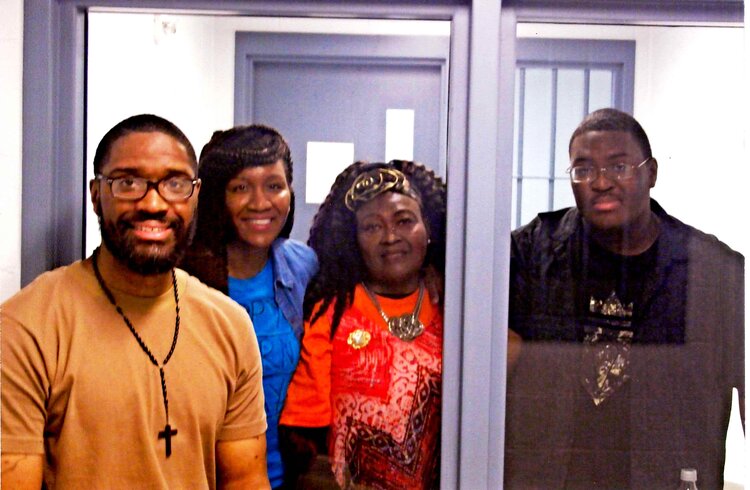Chanukah is a holiday of liberation. It is about freedom and deliverance. This year Chanukah begins on December 10th coinciding with International Human Rights Day, a celebration of the United Nation’s adoption in 1948 of the Universal Declaration of Human Rights (UDHR). It is fitting that these days would share a date. The UDHR was created in the wake of World War II. The foundation of international human rights laws, it enshrines as sacred the rights of life, freedom, religion, security, autonomy and so much more.
But this year Chanukah and Human Rights Day coincide with far less joyous events: the continuation of an unprecedented federal execution spree with the killings of of Brandon Bernard on Dec 10 and Alfred Bourgeois on the 11th. For these to take place on a date shared with Chanukah and Human Rights Day, is a betrayal of the values for both of those events.
Rabbi Joseph Soloveitchik, one of the pre-eminent voices of modern Orthodoxy, spoke of a revealed part of Chanukah, and a concealed part. The revealed is the story of liberation from bondage. One can see how this would relate to human rights, executions, and justice. The concealed part is about purifying the defilement of souls.
How are our souls defiled? “The concealed miracle of Chanukah – the elevation of evil, the sanctification of the defiled soul and its inclusion in the realm of holiness – is perhaps the most powerful vision of Judaism.” Soloveitchik references Genesis 1:31: “And God saw everything that He had made, and, behold, it was very good.” He concludes, “if everything is good, then the good can always be saved and raised up again, even if it has been defiled temporarily.”
Execution is final and certain. It says that we are right to punish this person by taking their life because they have no value and no means of redemption. They are beyond hope. They are evil. As Soloveitchik pointed out, all is good and can be raised up again. No person is beyond redemption.
Deliverance in our own day comes from our hands. Recognition of the rights and humanity of others, and safeguarding them, is as high a duty as we have. Documents such as the UDHR are a step in that direct, a formal, memorialized attempt to enumerate and elucidate all that each person is entitled to. Remembering it, as in days of old, renews our dedication to its values and encourages us to demand and continue its enforcement. Having a day to reflect on its obligations, and celebrate its successes, is consistent with the spirit of another holiday that celebrates “the saving of all that made life worth living.”
The UDHR guarantees the right to life and that “No one shall be subjected to torture or to cruel, inhuman or degrading treatment or punishment.” The death penalty is such a cruel, inhuman, and degrading punishment. To execute someone on a day celebrating this right, is an violation.
The same document declares that “All are equal before the law and are entitled without any discrimination to equal protection of the law.” The criminal legal system is rife with discrimination, and its own promises of equal protection fall far short. To exercise the ultimate power (or abuse thereof) of our criminal legal system on a day celebrating this right, is a violation. The Declaration asserts that “Everyone is entitled in full equality to a fair and public hearing by an independent and impartial tribunal, in the determination of his rights and obligations and of any criminal charge against him.” In a broken system, where our tribunals lack fairness, equality, accountability, or reliability, silencing those claims on a day celebrating this right, is a violation.
Chanukah is about redemption and hope. In the liturgy, we thank God for redemption. “Thus Your name was glorified and made holy in Your world, and Israel, Your people, achieved deliverance and a great victory–as is our wish for our own day.” What is the work of our day? Ending the death penalty. We can start by taking actions available at DeathPenaltyAction.org.
The two executions scheduled for the first two nights of Chanukah are the continuation of a federal execution spree that began in July, and may continue until just before Inauguration Day. At a time when we recognize the darkness of night by lighting candles in homes, we are extinguishing two lights of life. All human souls carry the spark of the Divine and its light. As our days grow darker, let us not further spread darkness by extinguishing two of God’s lights.
